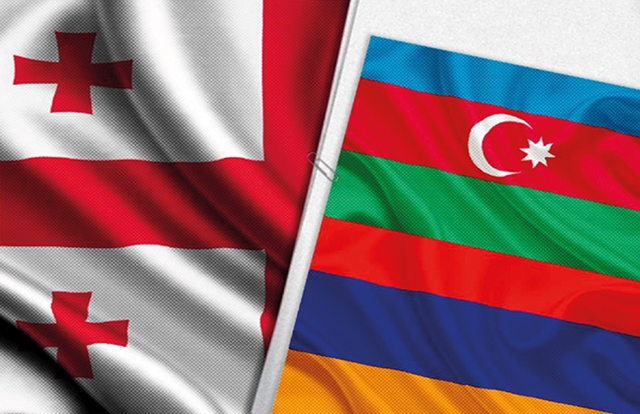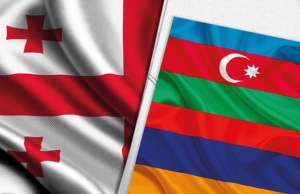Living Next Door to War
While the fighting over Nogorno-Karabakh continues, night and day in many cases, life in Tbilisi has continued. On the surface, many of our daily activities go uninterrupted, and many citizens in the capital, as well as many of the country’s other populated centers, go on as usual. However, below the surface and in many corners, there is movement; a slow current of tension and worry. For some, life is not the same and something must, or will inevitably, change.
The majority of the people living in the southern part of Georgia, near the populous center of Javakheti, have made their disapproval heard. During late night protests, hundreds of ethnic Armenians began shouting slogans and voicing disapproval at the recent and ongoing aggression in the region they refer to as Artsakh. Using social media platforms as an organizing tool, many of the military-aged men of the communities began raising funds and writing down names and personal information for potential use as a recruitment list. Many of the organizers told those involved that this list would be sent to Armenia and a draft could happen.
Reports of recruitment activities have been coming from many of the largely Armenian populated cities and towns, where rumors of full mobilization and deployment are running rampant. Despite the legal issues with this, the Armenian government will most likely refuse the offer of support, as a “Foreign Legion” in the Armenian ranks is likely far from reality. Despite this, the sentiment is clear: full support for Armenian defense is palpable even here in Georgia.
The protests came to a head when several people blocked traffic at a Turkish-Georgia border crossing point near Kartsakhi. Claiming it was being used as a transportation point for Turkish weapons and supplies bound for Azerbaijan, the demonstrations refused admittance for any vehicle bearing Turkish vehicle plates. Law enforcement was eventually able to clear the road hours later, and traffic has since resumed.
Reports of marches, demonstrations, and gatherings of Azeri communities in the south near the border have also come. Similar to the recruitment efforts of the Armenians, many of the young men of the Azeri have begun moving across the border with goals of enlisting in the defense forces. This has also been seen to a smaller effect in some of the Turkish communities sympathetic to the cause of the Azerbaijani efforts in the Nogorno-Karabakh offensive.
However, the issue of the elections has not been left untouched by these ripples of war. Some of the political parties have been brought to questioning. Naturally, former president of Georgia Mikheil Saakashvili has made inflammatory statements about the proper ownership of the disputed region, stating that, "Nagorno-Karabakh is the sovereign territory of Azerbaijan and nothing will change that”. This prompted a swift response from the Armenian community, quickly distancing themselves from his party, the United National Movement (UNM).
UNM party leaders in the southern Armenian dominated regions put out statements separating themselves in an attempt to save face. “When there’s a war, I find it unacceptable to talk about elections. Naturally, Saakashvili’s statement greatly affected our region, and our chances in the election decreased drastically, it’s an obvious fact,” said UNM majoritarian candidate Melik Raisyan. Anti-Azerbaijan and Anti-Turkish rhetoric was furthered from groups such as the Alliance of Patriots. Known for their stance against the Turkish, they have used the recurring problem at the Davit Gareji monastery as a display of where Georgia ought to be in the conflict.
Furthered by internet rumors of large civilian transport trucks hauling covered containers that were said to have Turkish cargo, many took to social media to promulgate this statement of aggression on both sides. The Georgian government quickly denounced these rumors, stating clearly that they were false and reiterating the position they have taken: complete neutrality. In addition, the recent agreement that no military support of any kind will move through Georgian territory solidified this position. Skrill Casinona: https://videospelautomater.com/betalningsmetoder/skrill.html
With the staunch position of neutrality, Georgia has taken another step towards being a modern nation, not being dragged into every conflict that comes near. However, it has and will continue to have ripples here. With multiple nations and international organizations observing closely, Georgia will be under more pressure than usual to play some role, albeit diplomatic. Many have speculated at the opportunity to be the converging point for the two sides, or act as a mediator, since the country has stakes in both countries. With NATO’s Jens Stoltenberg’s recent meeting and promising words of “prepare for partnership” ringing still from the recent summit in Brussels, it’s more important than ever for the nation to step in and play the intermediary of peace in the region.
By Michael Godwin












